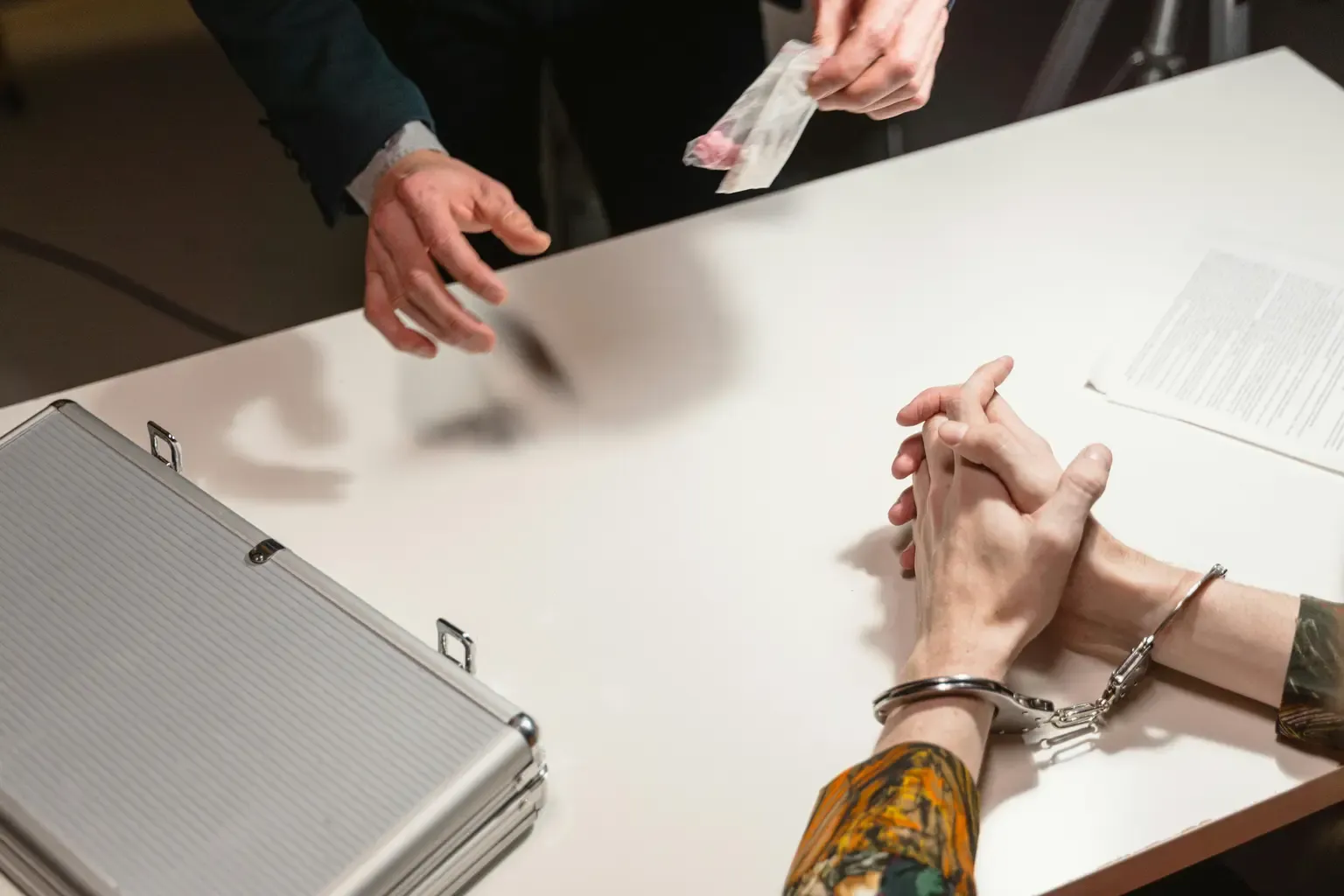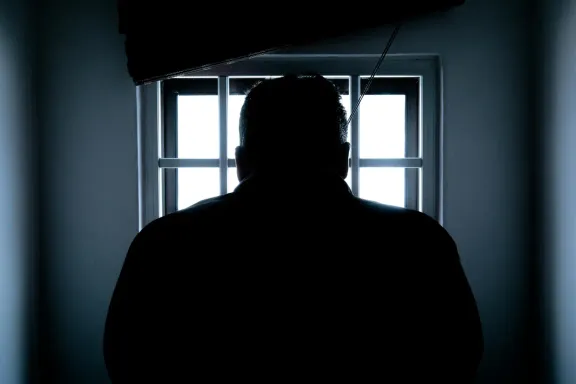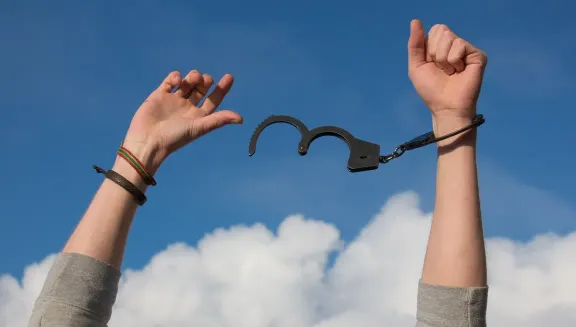Do First Time Drug Dealers Go To Jail in the UK? Sentencing, Alternatives, and More

Key Takeaways:
- First-time drug dealers in the UK can face serious charges, including Possession with Intent to Supply (PWITS), actual drug supply, and drug trafficking.
- Sentences vary depending on the type and class of drugs involved, with Class A offences carrying the harshest penalties, potentially leading to life imprisonment.
- First-time offenders may still face custodial sentences, especially for large-scale operations or dealing near schools, but alternatives like community orders, fines, and suspended sentences are possible for less severe cases.
- Mitigating factors, such as a clean criminal record, cooperation with authorities, and small-scale dealing, can lead to reduced sentences.
- Drug offence solicitors play a crucial role in defending first-time offenders, offering legal strategies, reducing charges, and exploring alternative punishments.
Under UK drug laws, drug dealing is treated as a serious criminal offence, even for first-time offenders, with the potential for imprisonment. Let's show you all of the associated factors influencing sentencing, the types of offences they may face, and help you understand how first-time offenders can navigate the complexities of the legal system when facing drug dealing charges in the UK.
What Types of Offences Can First-Time Drug Dealers Be Charged With?
First-time drug dealers in the UK can face a number of offences. The specific charges depend on the nature of the offence, the type of drugs involved, and the defendant's role in the operation and can include the following:
Possession With Intent to Supply (PWITS)
This is one of the most common first-time drug dealing offences in the UK and refers to possessing a controlled substance with the intent to supply it to others. Although simple possession is a lesser charge, possession with intent to supply carries more severe penalties than simple possession, with maximum sentences ranging from 14 years to life imprisonment depending on the drug class.
Actual Supply of Drugs
This offence covers the actual act of supplying or offering to supply controlled substances to others, commonly known as the supply of controlled drugs. It can include giving drugs to friends, even without payment, acting as a middleman in drug transactions, and selling drugs directly. Maximum penalties are similar to PWITS.
Drug Trafficking
Drug trafficking could include transporting drugs between cities, commonly known as “county lines” offences, using vulnerable people as drug mules, and importing drugs from overseas countries, which can lead to severe sentences, particularly for Class A drugs.
Conspiracy to Supply Drugs
This charge applies when two or more people agree to commit a drug supply offence, even if the supply doesn't take place.
How Is Intent to Supply Proven?
To secure a conviction for PWITS or supply offences, prosecutors may need to demonstrate intent, typically through factors like expert witness testimony, digital evidence, surveillance footage, and financial records showing unexplained income.
How Do the Different Classes of Drugs Impact Sentencing?

The classification of the drug can significantly impact sentencing for first-time drug dealers in the UK.
Class A Drugs
These types of drugs are ecstasy, cocaine, heroin, and LSD. For Class A drug offences, first-time dealers face up to life imprisonment for supply and/or production, or up to seven years in prison for possession.
Class B Drugs
These include amphetamines, ketamine, synthetic cannabinoids, and cannabis. Class B drug penalties in the UK for first-time dealers can be up to 14 years in prison for supply, production, or importation, and up to five years in prison for possession.
Class C Drugs
These are deemed the least harmful, but still illegal. Examples include benzodiazepines, GHB, and anabolic steroids. Class C drug offences first-time dealers may face up to 14 years in prison for supply, production, or importation, and up to two years in prison for possession.
The key difference in sentencing across drug classes is the maximum penalty, where Class A offences result in life imprisonment. Class B and C are capped at 14 years for supply offences. There are also aggravating factors, such as dealing near schools or involving minors, which can result in harsher sentences regardless of drug class and court discretion, where various factors are considered when determining actual sentences, such as the quantity of drugs, the offender's role, and mitigating circumstances.
Minimum Sentences for First-Time Drug Dealers: What to Expect
The minimum sentence for drug offences in the UK can consist of the following:
Sentencing Guidelines for Drug Dealing
Drug sentencing guidelines in the UK are strict for drug offences, including for first-time offenders, where sentences vary based on drug class, quantity, and the offender's role.
Additionally, first-time offenders may receive more lenient sentences, but custodial sentences are still possible, and mitigating factors are being considered by the court, which still treats drug dealing as a serious offence.
The Minimum Sentence for Possession With Intent to Supply
First-time offenders charged with PWITS for Class A drugs face a high-level community order, but custodial sentences are common. Community orders and suspended sentences are more likely for Class B and C drugs, but prison can still be possible. Although being a first-time offender can be a mitigating factor, it doesn't guarantee avoiding jail time, particularly relating to Class A offences.
Sentencing for Different Scales of Dealing
Sentences vary based on the scale of the operation. First-time offenders conducting small-scale dealing may receive community orders, suspended sentences, or shorter custodial sentences. For large-scale trafficking, first-time offenders can face substantial prison terms, potentially up to life imprisonment for Class A drugs.
Will First-Time Drug Dealers Go to Jail in the UK?

A first-time drug dealer in the UK can still face jail time, but whether they receive custodial sentences for drug offences or jail time depends on various factors:
Circumstances Where Jail Time Is Likely
- First-time drug dealers are more likely to receive custodial sentences in large-scale or more severe situations, such as dealing near schools or to minors, having a significant role in the supply chain, or being involved in large-scale operations like organised crime or dealing Class A drugs.
- The role of drug quantity, type, and intent will determine jail time, particularly when there is clear evidence of intent to supply, such as drug paraphernalia, multiple phones, and dealing large quantities of drugs at a higher class.
- The quantity thresholds for intent to supply have no fixed amount; however, general guidelines vary depending on the drugs. For example, supplying more than 10 to 20 pills, more than an ounce (28g) of cannabis, or more than a few grams of cocaine or heroin.
- For less serious cases, there can be alternative punishments for drug dealing, including community orders with drug rehabilitation requirements, fines, forfeiture orders, or suspended sentences. The alternatives are more likely for small-scale dealing of Class B or C drug cases, where the offender was exploited or coerced, and situations where the offender shows genuine remorse.
What Are the Alternative Penalties for First-Time Drug Offenders?
There are alternative punishments for drug offences in the UK, which depend on the circumstances of the case and can include the following:
Community Orders and Fines
Community orders can include unpaid work, curfews, or participation in rehabilitation activities. Conditional discharges occur when the offender is released but may face punishment if they commit another offence within a specified period.
Additionally, fines can be placed, and the amount varies based on the offence and the offender's financial situation. These are more common alternatives for possession offences rather than dealing.
Drug Treatment and Rehabilitation Orders
Courts may impose rehabilitation for drug offences, typically known as drug rehabilitation requirements as part of a community order, which typically involves regular drug testing, mandatory attendance at treatment sessions, and periodic court reviews to monitor progress.
Suspended Sentences
Suspended sentences are often considered for first-time offenders, even in some dealing cases. The prison sentence is suspended for a specified period, typically up to two years, and the offender must comply with certain conditions. If these conditions are met, the offender can avoid serving the prison term.
Can First-Time Drug Dealers Have Their Charges Dropped?
First-time drug dealers may have the charges dropped or reduced under certain circumstances. For example, if there's a lack of evidence, plea deals, or successful legal defences.
Legal Defences Leading to Dropped Drug Charges in the UK
Charges against first-time drug dealers may be dropped if there's insufficient evidence to prove intent to supply, the search and seizure were conducted illegally, violating the defendant's rights, there were serious procedural errors in the investigation or their arrest, or the drugs belonged to someone else, so the defendant had no knowledge of them.
Plea Bargaining in Drug Cases
Plea bargaining plays a significant role, as prosecutors may offer reduced charges in exchange for a guilty plea. First-time offenders may also plead guilty to possession instead of intent to supply, and sentences can be significantly reduced through plea deals.
Plea bargaining is less formalised than in some other countries, but it still occurs. For example, a first-time dealer charged with supplying Class A drugs may be offered a plea deal for a lesser offence like possession, potentially avoiding a custodial sentence.
Cooperation With the Authorities
Cooperating can lead to reduced charges in certain ways, for example, agreeing to testify against co-defendants, assisting in other investigations, or providing information about higher-level dealers and drug networks.

Aggravating and mitigating factors play a crucial role in determining sentences for drug dealing offences in the UK, which can significantly influence the court's decision:
Aggravating Factors
These can lead to harsher sentences, such as drug quantity, drug class, and proximity to schools or involvement of children. Additionally, the higher the purity of the drugs, the more serious it is considered, and if there's gang-related activity, dealing while on parole, previous convictions, community impact, as well as evidence of county lines exploitation, which involves using vulnerable individuals to transport or sell drugs.
Mitigating Factors
Mitigating factors for first-time drug offences can result in more lenient sentences and can include the following:
- No previous criminal record.
- Cooperating with authorities.
- Dealing in small quantities.
- Being involved in a small-scale operation.
- Taking steps to overcome personal drug addiction.
- Medical conditions, lack of maturity or mental health issues.
- Entering a guilty plea.
The presence of aggravating and mitigating factors can either reduce or extend sentences, but drug dealing remains a serious criminal offence, even with strong mitigating factors.
What Should You Do If You’re Facing Drug Dealing Charges for the First Time?
If you are facing drug dealing charges in the UK, it's crucial to take immediate and appropriate action, including the following:
Seek Specialised Legal Representation
Look for a solicitor who specialises in drug offences. They can assess the strength of the prosecution's case, identify potential defences or mitigating factors, and guide you through the legal process.
Understanding Police Questioning and the Court Process
When facing drug dealing charges, you should expect the following:
Police Interviews
You can exercise your right to have a solicitor present and have the right to remain silent if advised to do so.
Bail Considerations
Common advice for drug dealing charges is to push for bail if appropriate and comply with all bail conditions (if granted).
Court Appearances
Your solicitor will speak on your behalf and prepare you for multiple hearings. A drug offence solicitor in the UK can significantly impact your case because they could identify weaknesses in the prosecution's case, negotiate charges, present mitigating factors, and explore alternative sentencing.
How Can a Drug Offence Solicitor Help?

Facing drug dealing charges for the first time in the UK is a serious matter, with potential consequences including imprisonment, even for first-time offenders. The outcome depends heavily on factors such as the type and class of drug, the scale of the offence, and any mitigating circumstances.
While alternatives to prison, such as community orders or suspended sentences, may be possible, especially for less severe cases, drug dealing is treated as a serious offence under UK law.
Seeking expert legal representation is essential for anyone navigating these charges, as a skilled solicitor can help build a strong defence, explore alternative sentences, and improve the chances of a more favourable outcome.
Here is how MMA Law can help you:
Building a Strong Defence Strategy
A specialist solicitor for first-time drug offences will thoroughly examine all evidence against you, identify legal defences, gather evidence, and challenge the admissibility of evidence if proper procedures are not followed.
Negotiate for Reduced Charges or Sentencing
An experienced solicitor can engage in plea bargaining to reduce charges, present mitigating factors, and advocate for alternative punishments.
The Importance of Early Legal Intervention
Early involvement is critical because they can advise you during police interviews to avoid self-incrimination, build stronger defences by preparing the case early, and can start negotiating with prosecutors at the early stages, resulting in more favourable outcomes.
Engaging in legal defence for drug dealing charges can significantly improve anyone's chances of achieving the best possible outcome, making a crucial difference in the outcome of your case.
If you're wondering "Do first time drug dealers go to jail in the UK", or if you know anyone facing conspiracy or drug charges, contact McGee Mcgee Agar Law for help.
